- I recommend the Pixel 9 to most people looking to upgrade - especially while it's $250 off
- Google's viral research assistant just got its own app - here's how it can help you
- Sony will give you a free 55-inch 4K TV right now - but this is the last day to qualify
- I've used virtually every Linux distro, but this one has a fresh perspective
- The 7 gadgets I never travel without (and why they make such a big difference)
Top 40 Cybersecurity Companies You Need to Know 2024

As the demand for robust security defense grows, the market for cybersecurity technology has exploded, as have the number of available solutions. To help you navigate this growing market, we recommend 20 of the world’s leading cybersecurity technology providers and another 20 honorable mentions, based on their innovation, revenue and growth, user reviews, product features and benefits, analyst reports, independent security tests, and use cases.
Featured Partners: Cybersecurity Software
Top Cybersecurity Companies
The following table compares our top 20 providers:
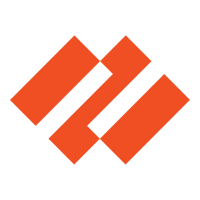
Palo Alto Networks
Best Protection Against Network, Endpoint, & Remote Asset Attack
Headquarters: Santa Clara, California
Founded: 2005
Annual Revenue: $7.52 billion
Appearances on eSecurity Planet‘s Top Vendors lists: 14
Palo Alto Networks (NASDAQ: PANW) delivers a broad portfolio of security products and a long history of top scores in rigorous independent security tests. Known for strong next-generation firewalls (NGFW) and endpoint detection and response (EDR) products, it also ranks for network security tools, zero trust, extended detection and response (XDR), IoT security, software-defined wide area network (SD-WAN), and secure access service edge (SASE).
While known primarily for its comprehensive cybersecurity solutions, Palo Alto managed a top-four finish in the first MITRE managed security tests, showing that it’s no slouch in security services either. Its security product tests have been consistently excellent, including in the latest MITRE endpoint security tests and CyberRatings firewall tests. Analysts predict that the 19-year-old Santa Clara firm will grow annual revenue at an 18% rate over the next five years.


Fortinet
Best for Network Security Perimeter Protection
Headquarters: Sunnyvale, California
Founded: 2000
Annual Revenue: $5.3 billion
Appearances on eSecurity Planet‘s Top Vendors lists: 15
Fortinet (NASDAQ: FTNT) turned its firewall expertise into leadership positions in NGFW, web application firewalls (WAF), unified threat management (UTM) and adjacent markets like software-defined wide area networks (SD-WAN) and enterprise virtual private networks (VPNs). Analysts project a 14.6% annual growth rate for the next five years.
The network security vendor doesn’t shy away from rigorous testing, and customer satisfaction ratings are high in key areas like product capabilities, value, ease of use, and support, which also help Fortinet make inroads into small business markets.


Cisco
Best for Integrated Network Security
Headquarters: San Jose, California
Founded: 1984
Annual Revenue: $57.2 billion
Appearances on eSecurity Planet‘s Top Vendors lists: 16
Cisco (NASDAQ: CSCO) pioneered networking and developed its network security offerings through internal development and acquisition. Splunk provided the headline acquisition in 2023, but Cisco also acquired Isovalent, Lightspin, Oort, and Working Group Two.
Cisco’s existing networking customers primarily drive the adoption of its security solutions for built-in compatibility with existing infrastructure. Still, Cisco earned a spot on our top security product lists such as network detection and response, SASE, security orchestration, automation, and response (SOAR), SD-WAN, NGFW, network access control (NAC), IoT, XDR, network security, and zero trust.


CrowdStrike
Best for Endpoint Security and Services
Headquarters: Sunnyvale, California
Founded: 2011
Annual Revenue: $3.4 billion
Appearances on eSecurity Planet‘s Top Vendors lists: 7
CrowdStrike (NASDAQ: CRWD) builds off of its strength in endpoint protection to offer solutions for XDR, MDR, vulnerability management as a service (VMaaS), and cloud security posture management (CSPM). Analysts predict five-year revenue growth of 31.8% and it earns high marks in both MITRE’s technical and MSSP evaluations.


Zscaler
Best for Cloud Security
Headquarters: San Jose, CA
Founded: 2007
Annual Revenue: $1.9 billion
Appearances on eSecurity Planet‘s Top Vendors lists: 5
Zscaler (NASDAQ: ZS) delivers cloud security and edge security through a cloud-native platform that transforms IT infrastructure from castle-and-moat networks to distributed, zero trust environments. Analysts see promise in this model and forecast a 5-year growth rate of 38.2%. Other top solutions provided by Zscaler include secure web gateways (SWGs) and deception tools.
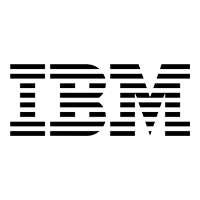

IBM
Best for Advanced Encryption
Headquarters: Armonk, New York
Founded: 1911
Annual Revenue: $61.9 billion
Appearances on eSecurity Planet‘s Top Vendors lists: 15
IBM’s biggest strength might be its research depth, which drives advances in areas like homomorphic encryption. Big Blue (NYSE: IBM) earns mention for unified endpoint management (UEM), SOAR, SIEM, encryption, database security, threat intelligence platform, single sign-on, and managed security service providers (MSSPs).
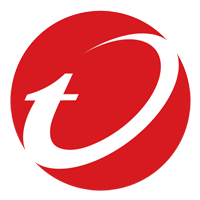

Trend Micro
Best for Small Businesses
Headquarters: Tokyo, Japan
Founded: 1988
Annual Revenue: $1.3 billion
Appearances on eSecurity Planet‘s Top Vendors lists: 14
Trend Micro (OTC: TMICY) customers cite high value and ease of use across a portfolio of tools such as antivirus, full disk encryption, cloud workload protection platforms (CWPP), and intrusion detection and prevention systems (IDPSs). With $1.3 billion in revenues, Trend Micro continues to grow past its status as a first-gen antivirus vendor.


Okta
Best for Access Management
Headquarters: San Francisco
Founded: 2009
Annual Revenue: $2.3 billion
Appearances on eSecurity Planet‘s Top Vendors lists: 4
Okta (NASDAQ: OKTA) delivers leading identity and access management (IAM) and zero trust solutions. With easy to use, deploy, and manage products, Okta continues to attract security buyers, and analysts project a long-term expected growth rate of 25% despite several highly publicized breaches.


OneTrust
Best for Privacy and Compliance
Headquarters: Atlanta, Georgia
Founded: 2016
Annual Revenue: $0.4 billion
Appearances on eSecurity Planet‘s Top Vendors lists: 2
OneTrust (private) is an 8-year-old privacy compliance technology startup that has ridden data privacy laws like GDPR and CCPA to rapid growth. The company provides solutions to quantify and assess the risks associated with data exposure and earns high rankings on our risk management, third-party risk management, and hot cybersecurity startups lists.
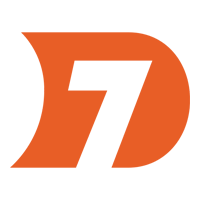

Rapid7
Best for Integrated Vulnerability & Threat Management
Headquarters: Boston, Mass.
Founded: 2000
Annual Revenue: $0.8 billion
Appearances on eSecurity Planet‘s Top Vendors lists: 9
The Rapid7 (NASDAQ: RPD) security portfolio builds on a strong base in vulnerability detection and management and adds SIEM and threat detection capabilities. An emphasis on pricing transparency, value, and ease of use drives growth that analysts project will reach 52% over the next 5 years.
That combination has landed Rapid7 on 9 of our top product lists: SIEM, SOAR, MDR, vulnerability management, VMaaS, vulnerability scanning, breach and attack simulation, application security, and UEBA.
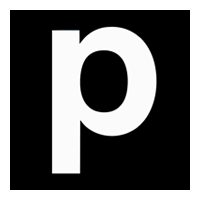

Proofpoint
Best for End User Data Security
Headquarters: Sunnyvale, California
Founded: 2002
Annual Revenue: $1.1 billion
Appearances on eSecurity Planet‘s Top Vendors lists: 7
Proofpoint (private) focuses on securing end users with a product portfolio that includes cloud access security broker (CASB), data loss prevention (DLP), zero trust, threat intelligence, email security, and email gateways. The company cleared the $1 billion revenue mark before Thoma Bravo took it private in 2021.


Tenable
Best for Vulnerability Management
Headquarters: Columbia, Maryland
Founded: 2002
Annual Revenue: $0.8 billion
Appearances on eSecurity Planet‘s Top Vendors lists: 8
Tenable (NASDAQ: TENB) seeks to reduce the attack surface through a portfolio of solutions that includes vulnerability management, vulnerability scanning, patch management, cloud security, Active Directory security, pen testing, and breach and attack simulation. The focus on enabling critical, yet difficult to achieve, security processes earns Tenable strong positive reviews across their portfolio.


KnowBe4
Best for Security Awareness Training
Headquarters: Clearwater, Florida
Founded: 2010
Annual Revenue: $0.2 billion
Appearances on eSecurity Planet‘s Top Vendors lists: 2
KnowBe4 (private) gained first mover advantage in cybersecurity training – a critically important practice for reducing the source of most cyberattacks. The training enjoys very positive customer reviews, which drives success and motivated the $4.6 billion take-private acquisition by Vista Equity Partners in February 2023.


Darktrace
Best for AI-Powered Security
Headquarters: Cambridge, UK
Founded: 2013
Annual Revenue: $0.5 billion
Appearances on eSecurity Planet‘s Top Vendors lists: 1
The UK-based venture between British intelligence agencies and Cambridge mathematicians, Darktrace (LSE: DARK), pioneers AI-based security. Their quality earns a top for NDR tools, but the product often challenges categorization with both security and operations features for prevention, detection, incident response, and automated healing.


Check Point
Best for Firewalls
Headquarters: Tel Aviv, Israel, and San Carlos, California
Founded: 1993
Annual Revenue: $2.4 billion
Appearances on eSecurity Planet‘s Top Vendors lists: 12
Check Point (NASDAQ: CHKP), the 30-year-old firewall pioneer, offers a complete security portfolio that ranks highly on independent security tests (MITRE, etc.). It offers strong security and value through traditional solutions such as firewalls, gateways, UTM, DLP, and encryption, as well as a strong service portfolio.
In addition to incident response and threat intelligence services, Check Point continues to invest in software-as-a-service (SaaS) providers and recently acquired both Atmosec and Perimeter81.


Sophos
Best for Home and Small Office Security
Headquarters: Abingdon, United Kingdom
Founded: 1985
Annual Revenue: $0.6 billion
Appearances on eSecurity Planet‘s Top Vendors lists: 10
Sophos (private), founded in the 1980s, provides both consumer antivirus and enterprise solutions for WAF, NGFW, UTM, EDR, cloud workload protection platform (CWPP), encryption, XDR, MDR, and ransomware removal. Thoma Bravo took the company private in 2020 with services a major focus area under the new ownership.
Customer reviews have been among the best on this list, showing plenty of demand for products that offer good security, value, and ease of use.


Broadcom
Best for Endpoint Management
Headquarters: San Jose, California
Founded: 1991
Annual Revenue: $35.8 billion
Appearances on eSecurity Planet‘s Top Vendors lists: 12
Broadcom (NASDAQ: AVGO) offers a robust portfolio of security solutions such as CASB, DLP, SASE, SD-WAN, and zero trust. However, their product and service mix continues to shift as they attempt to digest acquisition brands such as Symantec’s enterprise security tools and VMware’s portfolio that also includes Carbon Black.


Trellix
Best XDR Solution
Headquarters: San Jose, California
Founded: 2022 (Trellix), 1987 (McAfee), 2004 (FireEye)
Annual Revenue: Privately held
Appearances on eSecurity Planet‘s Top Vendors lists: 8
Trellix focuses on its core network security market and related technology that protects against network threats, such as IDPS, SOAR, and encryption. The company was formed in 2022 when the private equity group Symphony Technology Group (STG) merged technologies and products from FireEye and McAfee Enterprise.
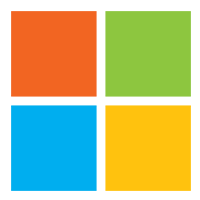

Microsoft
Best for Windows Security
Headquarters: Redmond, Washington
Founded: 1975
Annual Revenue: $227.6 billion
Appearances on eSecurity Planet‘s Top Vendors lists: 15
Microsoft’s (MSFT) continues to build out its security portfolio that already includes IAM, endpoint protection, cloud security services, DDoS protection, database security, and more. In addition to quantity, the solutions also provide quality with performance near the top of MITRE’s endpoint and MSSP evaluations.


Barracuda Networks
Best for Remote Worker Protection
Headquarters: Campbell, CA
Founded: 2003
Annual Revenue: Private
Appearances on eSecurity Planet‘s Top Vendors lists: 11
Barracuda Networks builds on their pioneering email security products to deliver solutions for WAF, UTM, SASE, and zero trust. The reliable products perform well in testing and customer satisfaction rankings, which also helps place Barracuda in our list of top tools and software for SMBs.
Other Cybersecurity Market Leaders
Reduce your organization’s cyberattack potential by ensuring all credentials are secure. See our top picks for the best enterprise password managers.
The cybersecurity industry is loaded with great companies. The following didn’t make our top 20 cybersecurity companies, but that doesn’t mean they don’t have great products and services. Some continue to gain traction and in other cases, mergers and private equity takeovers have limited our visibility, yet all these vendors make our top product lists and meet the needs of many users.
| Honorable Mentions | ||||
| Vendor | # of eSecurity Planet Top Product Lists | Overall Gartner Peer Insights Score | Overall Glassdoor Score | Composite Security Testing Score |
| OpenText (DevSecOps, encryption, SSO) |
8 | 4.3 | 3.5 | N / A |
| Ivanti (patch management, VMaaS, ITAM) |
9 | 4.3 | 3.8 | N / A |
| Illumio (zero trust, CWPP) |
3 | 4.6 | 4.0 | N / A |
| SkyHigh (CASB, cloud security) |
4 | 4.6 | 3.3 | N / A |
| Tanium (zero trust, patch management) |
2 | 4.8 | 4.0 | N / A |
| Netskope (CASB, zero trust) |
4 | 4.6 | 4.5 | N / A |
| SonicWall (UTM) |
1 | 4.6 | 4.3 | N / A |
| LogRhythm (SIEM, SOAR, UEBA, forensic tools) |
5 | 4.5 | 3.9 | N / A |
| Forcepoint (NGFW, CASB, DLP, zero trust) |
7 | 4.5 | 3.9 | N / A |
| CyberArk (IAM, privileged access management) |
4 | 4.5 | 4.1 | N / A |
| Qualys (BAS, VMaaS, container security) |
7 | 4.3 | 3.5 | N / A |
| Cybereason (EDR, XDR, MDR) |
3 | 4.4 | 3.2 | 94.73 |
| Akamai (bot protection, zero trust, BAS, WAF) |
6 | 4.6 | 4.5 | N / A |
| SentinelOne (MDR, XDR, CWPP) |
4 | 4.8 | 4.6 | 94.06 |
| Arctic Wolf (MDR) |
2 | 4.7 | 4.2 | N / A |
| Snyk (Container security, DevSecOps) |
2 | 4.5 | 3.7 | N / A |
| Lacework (cloud security) |
1 | 4.3 | 3.7 | N / A |
| Cynet (EDR, UEBA, incident response) |
6 | 4.6 | 4.3 | 95.11 |
| Bitdefender (ransomware removal) |
2 | 4.6 | 4.1 | 90.88 |
| Wiz (vulnerability scanners) |
2 | 4.7 | 4.0 | N / A |
Methodology
To compile our list, we started with innovation and market leadership, hence our focus on our rigorously researched top security product lists. Consistent performance, revenue, and growth were ranking factors, as were strong independent security test results in a market that’s starved for information. User reviews, product features, benefits and use cases, and analyst reports also played a role in our analysis.
Specialization can be a good thing in cybersecurity, witness the likes of CrowdStrike, Okta, and OneTrust high on our list. The vendors at the top of the list shouldn’t surprise longtime readers — Palo Alto Networks and Fortinet continue to impress us — and a number of other vendors have also withstood the test of time.
Frequently Asked Questions (FAQs)
The following questions are some of the most common from individuals researching security technologies and jobs.
What Are the Main Types of Cybersecurity?
While the security industry is broad and nuanced, there are a few widely recognized categories of security:
- Network security: Protects the connections between networks, including data transfers to and from the internet, and hardware like routers and switches.
- Endpoint security: Defends devices like laptops, phones, and servers.
- Application security: Adds protection for software, data, and access at the individual application level.
- Cloud security: Protects cloud environments and data from vulnerabilities and threat actors.
Also note that some security solutions cover multiple categories. Extended detection and response (XDR), for example, pulls alerts from endpoints, networks, and applications into a single console for centralized management.
How Do You Choose a Cybersecurity Company?
Choosing a cybersecurity vendor involves multiple factors, including company focus, integration issues, customer support needs, your team’s skill level, and your budget. Consider the following questions when choosing a cybersecurity vendor:
- What is the company’s overall focus? If you’re searching for a container security solution, consider a vendor that specializes in cloud and application security.
- How many of their solutions will you use? If you have software or hardware from another security vendor, do they integrate well? And look at support for other applications too.
- What are your customer support needs? Signs that a vendor has good technical service include 24/7 support in multiple channels and high praise for the support team in reviews.
- Can your business afford it? Some smaller businesses might not have the budget for vendors like Palo Alto and CrowdStrike, and that’s okay. There are plenty of providers that have security solutions designed for small companies.
Will Cybersecurity Jobs Become Obsolete?
If you’re a job seeker in the security industry or considering a career change, know that cybersecurity careers aren’t going anywhere. They might continue to change as the industry evolves, but demand for cybersecurity skills and training remains strong. Today’s IT climate requires knowledge of large security platforms, detection and response technologies, and even sometimes distributed systems.Job seekers will need to research the field and curate skills that will be most useful to potential employers. Organizations like EC-Council and CompTIA+ have certifications that provide a springboard for individuals wanting to start a security career. And continued education is critical for staying on top of threats — never stop learning.
What Are the Top Cybersecurity Companies to Work For?
The following companies are a sample of highly rated enterprises with strong security solutions. If you’re job searching or considering a career change, look at open roles with these tech organizations.
SentinelOne offers good benefits and receives a 4.6 out of 5 stars on Glassdoor. SentinelOne is also comparatively small in the security industry, with fewer than a thousand employees. And the company boasts some pretty stellar cybersecurity products too.
Netskope offers flexible spending accounts, a 401(k), and employee stock purchase plans to its personnel. It earns 4.5 stars from Glassdoor employee reviews. Netskope specializes in SASE, CASB, and SD-WAN technology.
Palo Alto Networks has employee benefits like stock purchase plans, development courses, and a 401(k). It earns 4.1 stars on Glassdoor. Palo Alto has some of the best and broadest security in the entire industry so there’s lots of opportunity to experience different facets of security.
Fortinet offers benefits like unlimited PTO, a health savings account, and a 401(k) to employees. It too has 4.1 stars on Glassdoor. Fortinet is known for its firewalls but excels elsewhere as well, including in SIEM and EDR.
And don’t forget big IT vendors with a security presence. Cisco (4.3 stars from Glassdoor) and Microsoft (4.3) are two standouts to consider.
And lastly, CyberArk offers an investment program, employee recognition program, and tuition reimbursement. The IAM leader receives 4.1 stars on Glassdoor.
Bottom Line: Top Cybersecurity Companies
The enterprise security market is a wide one, covering a range of technologies and systems that need to be protected. Some vendors offer a variety of products, while others specialize in just one or two.
To choose a potential provider for your business, consider your needs first before searching for the right fit. While all the vendors listed above offer strong solutions, it’s worth the effort to research and demo products until you find one well suited to your organization’s cybersecurity needs.
Crave more insight into the cybersecurity companies in the market? Read about the top cybersecurity startups.
Drew Robb, Jenna Phipps, and Chad Kime contributed to this research report.

